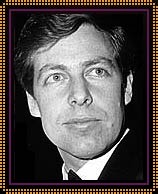 This noted British designer began his career at age 22 with the 1957 Broadway production of Noël Coward’s “Conversation Piece.” Walton alternated between designing for the London and New York stage throughout the late 1950s and early ’60s. He entered films as costume designer and visual consultant on Disney’s MARY POPPINS (1964), which starred his then-wife Julie Andrews. His eye-popping, late Edwardian costumes for this landmark film that included a mix of animation and live action earned him the first of five Oscar nominations. He went on to create the futuristic world of FAHRENHEIT 451 (1966) and the Roaring Twenties look of Ken Russell’s backstage musical version of THE BOYFRIEND (1971). THE SEA GULL (1968), with its 19th-century Russian settings, marked the first of seven screen collaborations with Sidney Lumet. Walton went on to earn Oscar nominations for his elegant costumes for the director’s MURDER ON THE ORIENT EXPRESS (1974) and for both sets and costumes for Lumet’s misguided THE WIZ (1978). Walton finally shared a statuette (with Philip Rosenberg) for Bob Fosse’s superb ALL THAT JAZZ (1979), which required the creation of not only contemporary Manhattan settings but also elaborate fantasy and flashback sequences, most notably a hospital setting.
This noted British designer began his career at age 22 with the 1957 Broadway production of Noël Coward’s “Conversation Piece.” Walton alternated between designing for the London and New York stage throughout the late 1950s and early ’60s. He entered films as costume designer and visual consultant on Disney’s MARY POPPINS (1964), which starred his then-wife Julie Andrews. His eye-popping, late Edwardian costumes for this landmark film that included a mix of animation and live action earned him the first of five Oscar nominations. He went on to create the futuristic world of FAHRENHEIT 451 (1966) and the Roaring Twenties look of Ken Russell’s backstage musical version of THE BOYFRIEND (1971). THE SEA GULL (1968), with its 19th-century Russian settings, marked the first of seven screen collaborations with Sidney Lumet. Walton went on to earn Oscar nominations for his elegant costumes for the director’s MURDER ON THE ORIENT EXPRESS (1974) and for both sets and costumes for Lumet’s misguided THE WIZ (1978). Walton finally shared a statuette (with Philip Rosenberg) for Bob Fosse’s superb ALL THAT JAZZ (1979), which required the creation of not only contemporary Manhattan settings but also elaborate fantasy and flashback sequences, most notably a hospital setting.
Walton, however, has been one of the preeminent stage designers since the 1960s. Beginning with his witty costumes and sets for “A Funny Thing Happened on the Way to the Forum” in 1963, he has created the look for many successful musical productions, including the Fosse-directed “Pippin” (1972), with its Carolingian setting; “Chicago” (1975), set in the ’20s; the Tommy Tune-staged “A Day in Hollywood/A Night in the Ukraine” (1980), which re-created the Tinseltown glamour of the ’30s; “Grand Hotel” (1989), set in prewar Berlin; and the acclaimed revival of “Guys and Dolls” (1992). Walton has frequently worked with Mike Nichols, creating everything from the barracks of “Streamers” (1977) to the contemporary English settings of Tom Stoppard’s “The Real Thing” (1984). More recently, Walton has branched out into directing, staging and designing a well-received 1996 revival of Oscar Wilde’s “The Importance of Being Earnest.”
Source: Excerpted from Baseline. BaselineStudioSystems — A Hollywood Media Corp. Company.
Photo credits: Photofest and AP/Wide World

